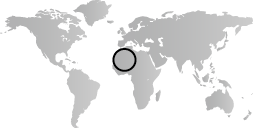With the advent of colonialism, African peoples become subjects of European states. While colonial doctrines differ among the European powers, particularly on the question of direct versus indirect rule, all Africans are affected by the imposition of new legal, religious, and economic codes. The development of anthropology as a scientific discipline coincides with Europe’s closer association with African peoples, resulting in a greater understanding and appreciation of African societies, belief systems, and artistic practices. The ethnographic work of Marcel Griaule, among others, inspires Western interest in artworks from Mali created by Dogon and Bamana artists, and later the terracotta sculptures of the ancient Middle Niger Delta. African intellectuals such as Léopold Sédar Senghor grapple to resolve the frequently conflicting worldviews of Africa and the West, developing ideologies that attempt to engage European ideas while preserving African sensibilities. While these strategies are consciously employed at such state institutions as the École Nationale des Beaux-Arts du Sénégal, they are also evoked by artists working at the popular and commercial level, including urban photographers such as Seydou Keïta. The establishment of state boundaries, political and economic infrastructures, and national museum and university systems plays an important role in developing and shaping national identities that ultimately call for, and achieve, independence from colonial rule. During the postcolonial era, artists and artistic movements are attuned to local, national, and international concerns, from the urban revitalization of Sét-Sétal to the global outlook of the DAK’ART festival and Laboratoire AGIT-Art.


